Thomas Gilovich Quotes & Sayings
Enjoy the top 24 famous quotes, sayings and quotations by Thomas Gilovich.
Famous Quotes By Thomas Gilovich
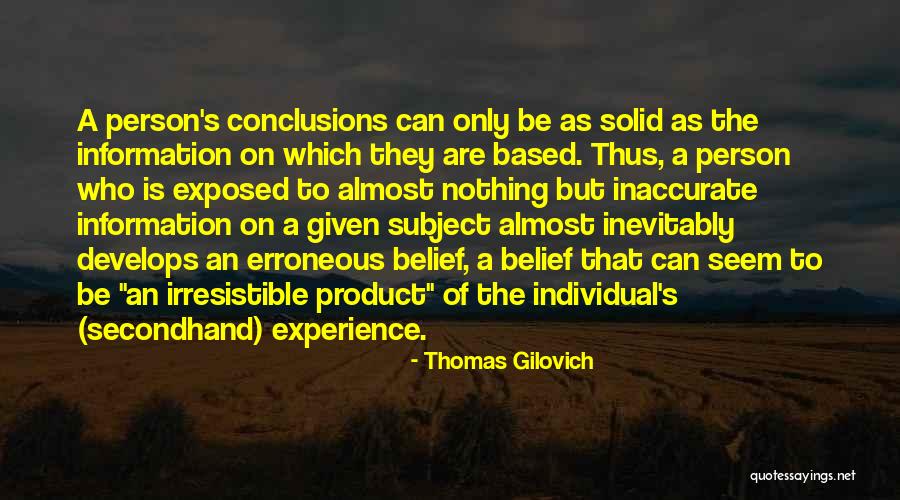
A person's conclusions can only be as solid as the information on which they are based. Thus, a person who is exposed to almost nothing but inaccurate information on a given subject almost inevitably develops an erroneous belief, a belief that can seem to be "an irresistible product" of the individual's (secondhand) experience. — Thomas Gilovich
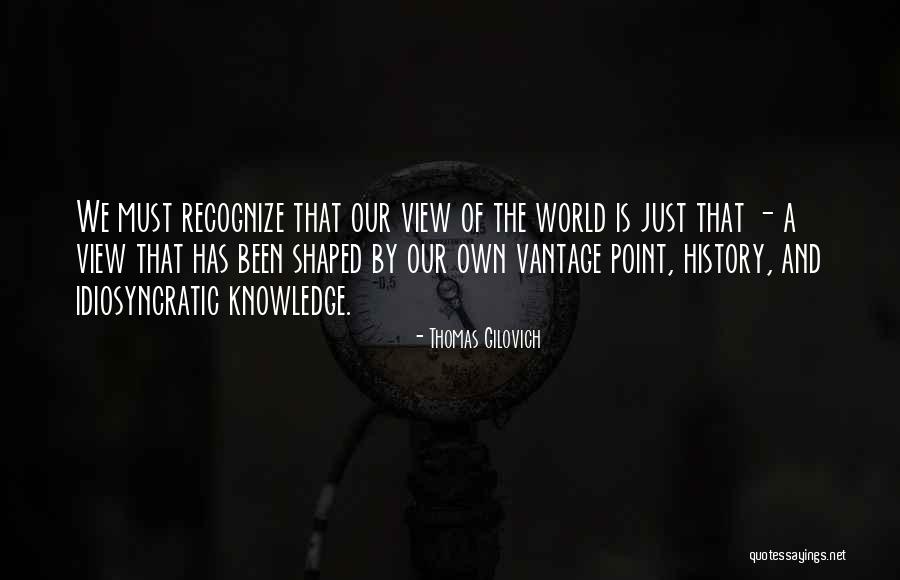
We must recognize that our view of the world is just that - a view that has been shaped by our own vantage point, history, and idiosyncratic knowledge. — Thomas Gilovich
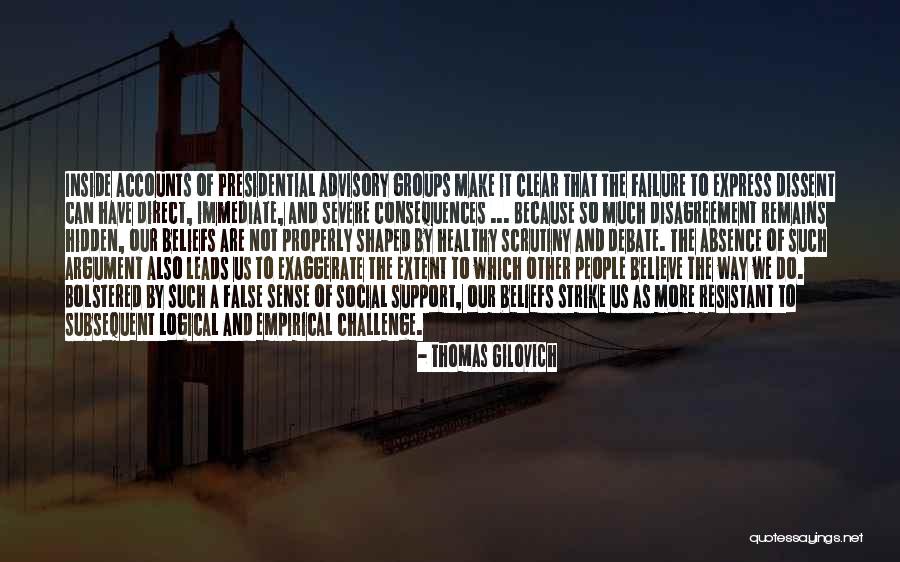
Inside accounts of Presidential advisory groups make it clear that the failure to express dissent can have direct, immediate, and severe consequences ... Because so much disagreement remains hidden, our beliefs are not properly shaped by healthy scrutiny and debate. The absence of such argument also leads us to exaggerate the extent to which other people believe the way we do. Bolstered by such a false sense of social support, our beliefs strike us as more resistant to subsequent logical and empirical challenge. — Thomas Gilovich
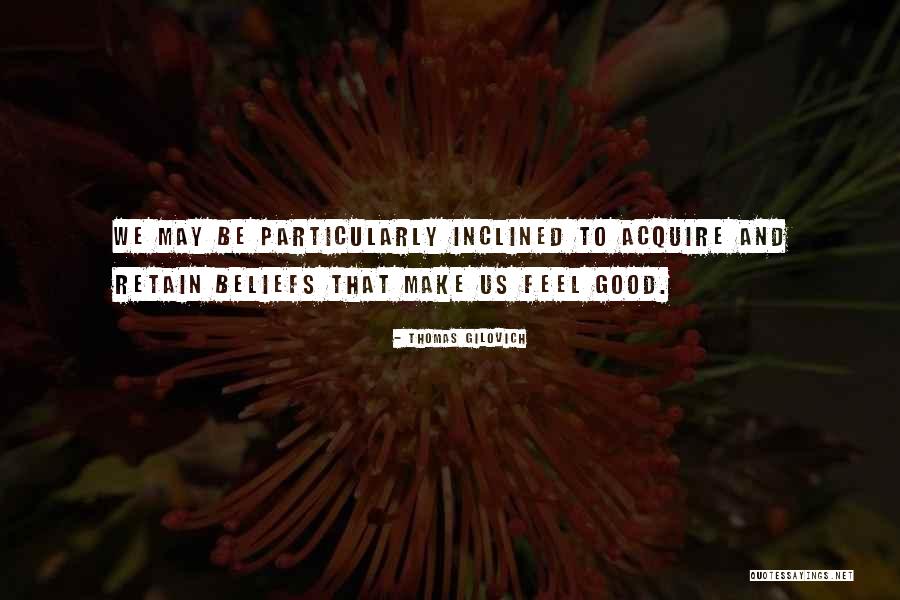
We may be particularly inclined to acquire and retain beliefs that make us feel good. — Thomas Gilovich
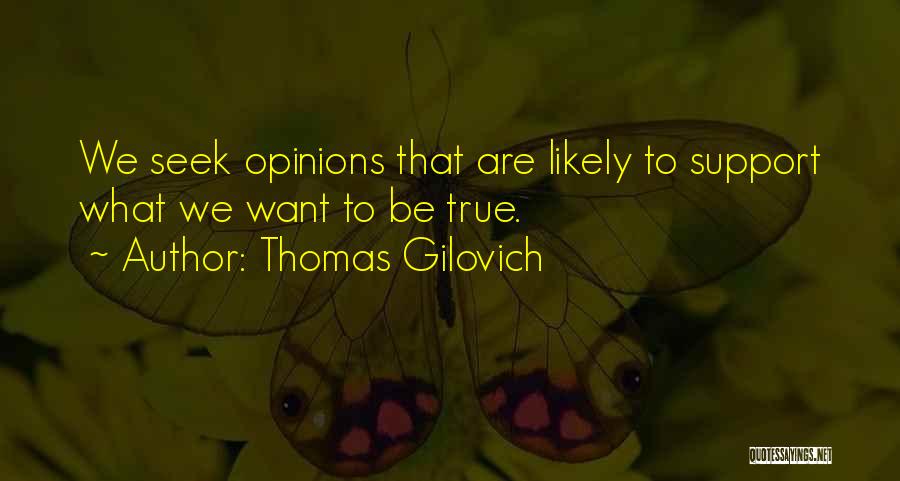
We seek opinions that are likely to support what we want to be true. — Thomas Gilovich
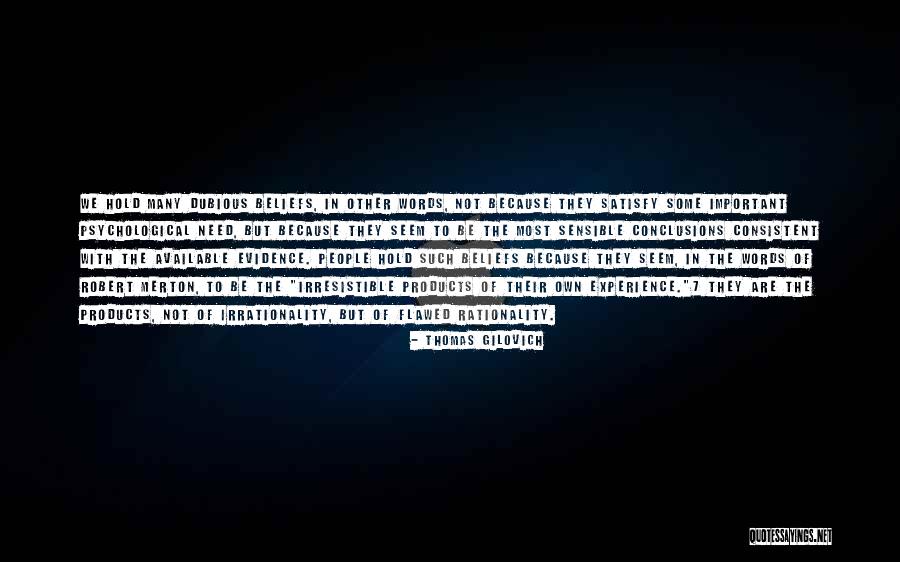
We hold many dubious beliefs, in other words, not because they satisfy some important psychological need, but because they seem to be the most sensible conclusions consistent with the available evidence. People hold such beliefs because they seem, in the words of Robert Merton, to be the "irresistible products of their own experience."7 They are the products, not of irrationality, but of flawed rationality. — Thomas Gilovich
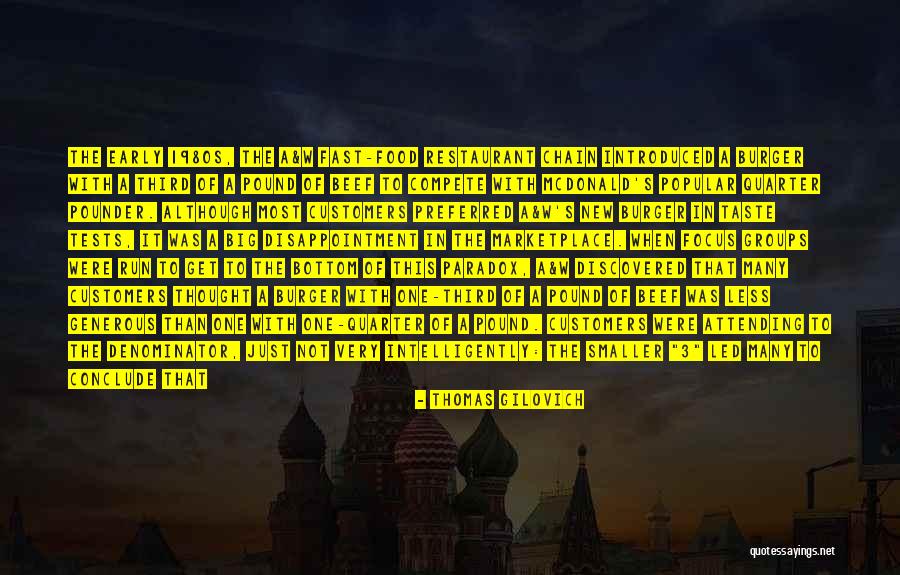
the early 1980s, the A&W fast-food restaurant chain introduced a burger with a third of a pound of beef to compete with McDonald's popular quarter pounder. Although most customers preferred A&W's new burger in taste tests, it was a big disappointment in the marketplace. When focus groups were run to get to the bottom of this paradox, A&W discovered that many customers thought a burger with one-third of a pound of beef was less generous than one with one-quarter of a pound. Customers were attending to the denominator, just not very intelligently: The smaller "3" led many to conclude that one-third is smaller than one-quarter!21 — Thomas Gilovich
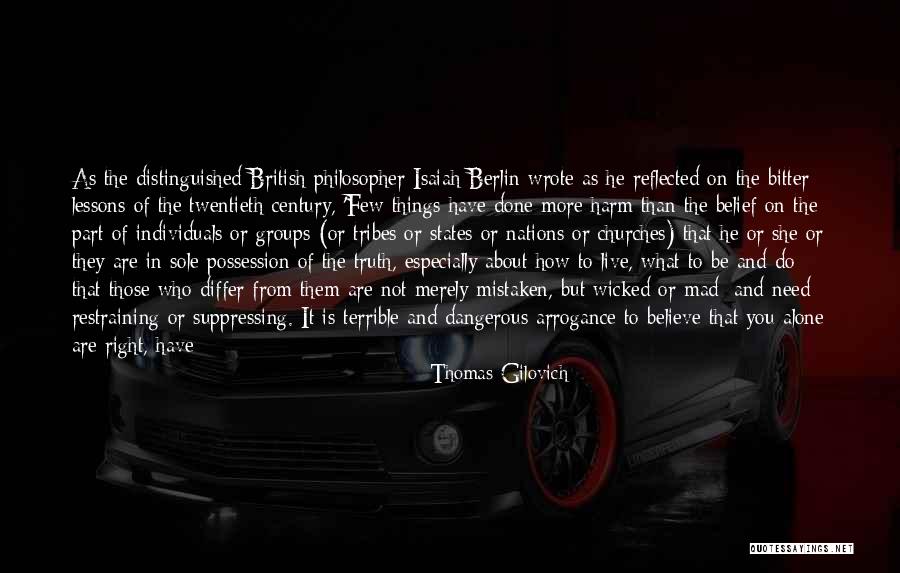
As the distinguished British philosopher Isaiah Berlin wrote as he reflected on the bitter lessons of the twentieth century, 'Few things have done more harm than the belief on the part of individuals or groups (or tribes or states or nations or churches) that he or she or they are in sole possession of the truth, especially about how to live, what to be and do - that those who differ from them are not merely mistaken, but wicked or mad: and need restraining or suppressing. It is terrible and dangerous arrogance to believe that you alone are right, have a magical eye which sees the truth, and that others cannot be right if they disagree. — Thomas Gilovich

When we do cross paths with people whose beliefs and attitudes conflict with our own, we are rarely challenged. — Thomas Gilovich

We learn from history that man can never learn anything from history. — Thomas Gilovich
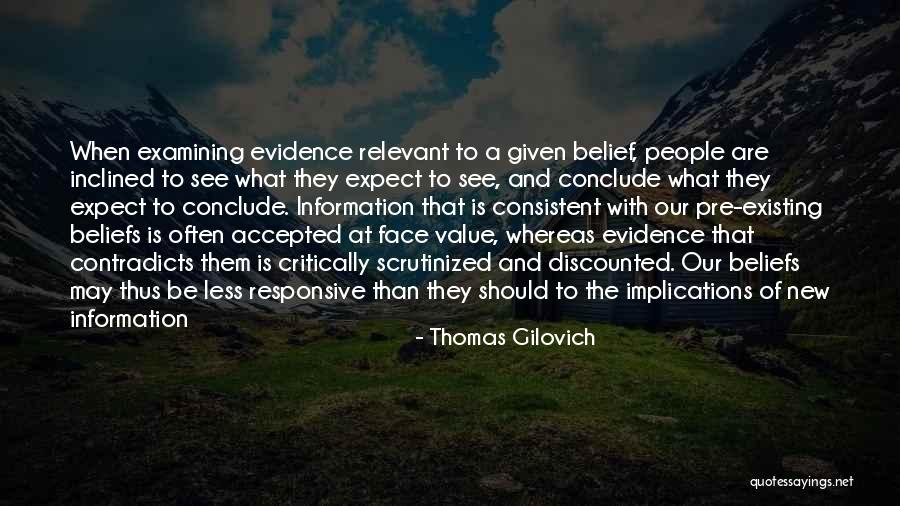
When examining evidence relevant to a given belief, people are inclined to see what they expect to see, and conclude what they expect to conclude. Information that is consistent with our pre-existing beliefs is often accepted at face value, whereas evidence that contradicts them is critically scrutinized and discounted. Our beliefs may thus be less responsive than they should to the implications of new information — Thomas Gilovich
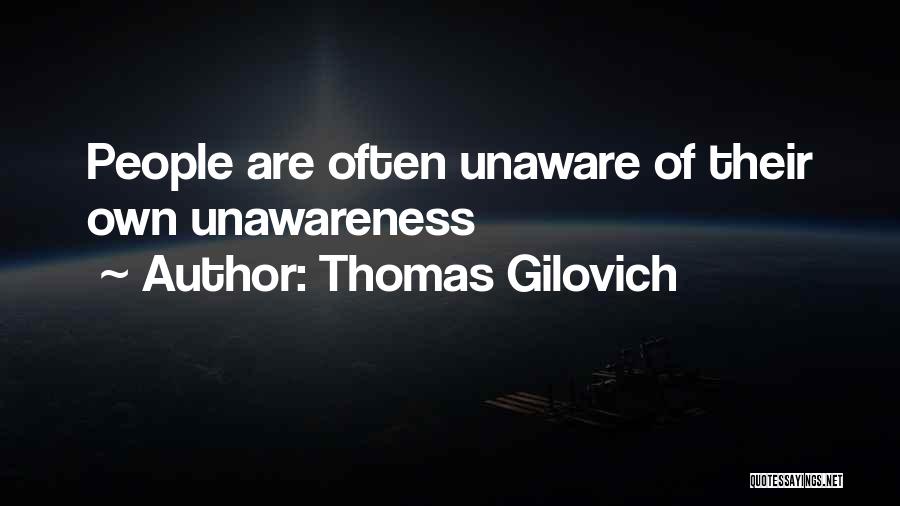
People are often unaware of their own unawareness — Thomas Gilovich
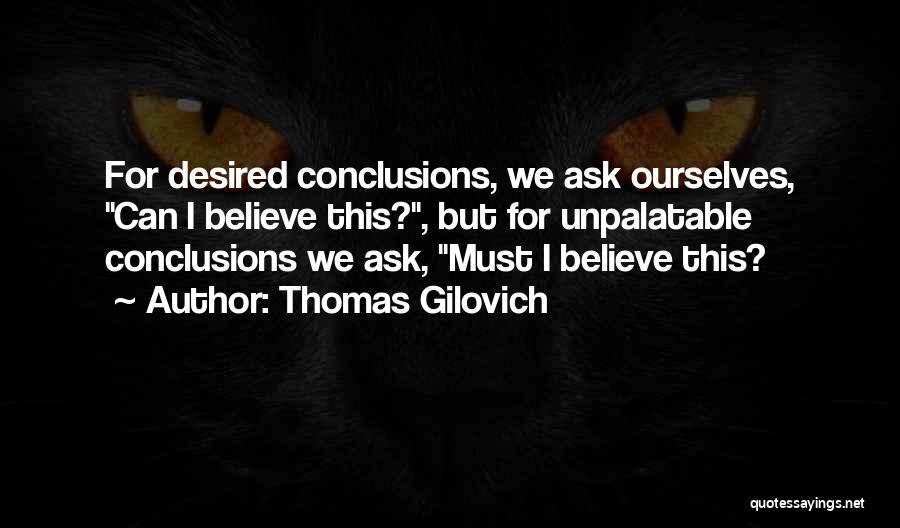
For desired conclusions, we ask ourselves, "Can I believe this?", but for unpalatable conclusions we ask, "Must I believe this? — Thomas Gilovich
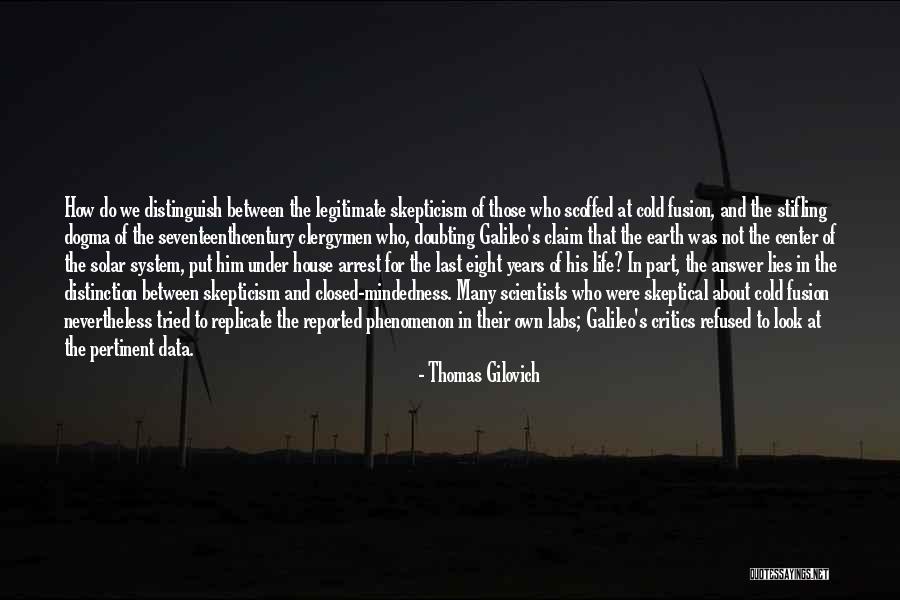
How do we distinguish between the legitimate skepticism of those who scoffed at cold fusion, and the stifling dogma of the seventeenthcentury clergymen who, doubting Galileo's claim that the earth was not the center of the solar system, put him under house arrest for the last eight years of his life? In part, the answer lies in the distinction between skepticism and closed-mindedness. Many scientists who were skeptical about cold fusion nevertheless tried to replicate the reported phenomenon in their own labs; Galileo's critics refused to look at the pertinent data. — Thomas Gilovich
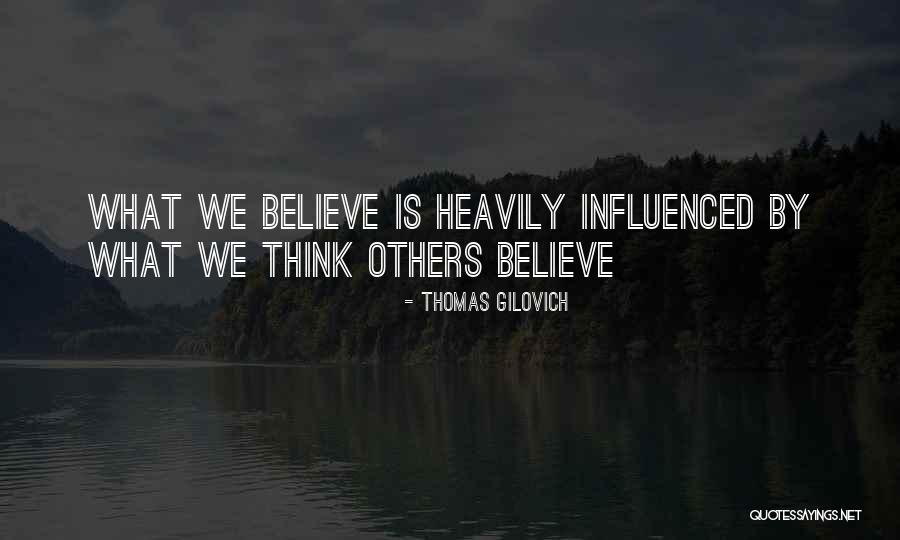
What we believe is heavily influenced by what we think others believe — Thomas Gilovich
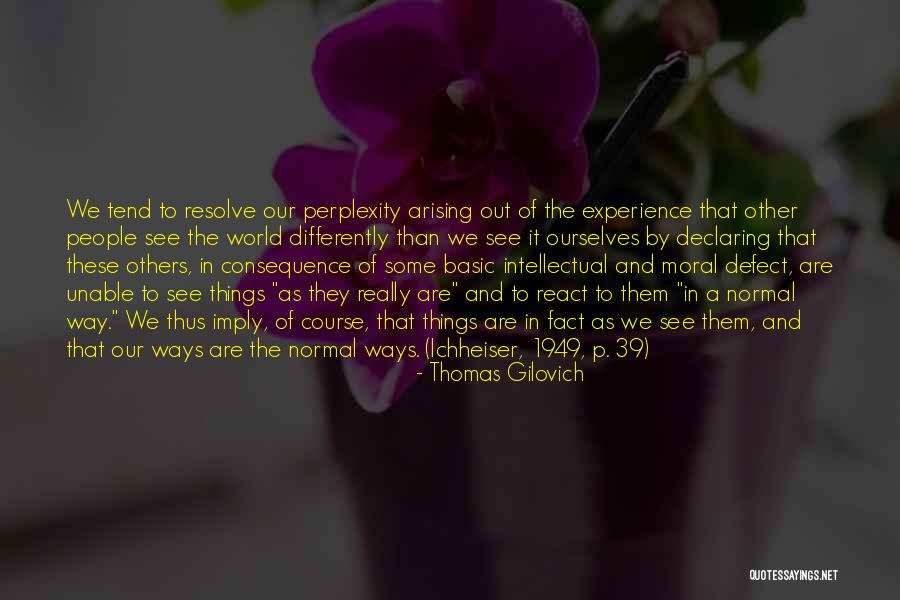
We tend to resolve our perplexity arising out of the experience that other people see the world differently than we see it ourselves by declaring that these others, in consequence of some basic intellectual and moral defect, are unable to see things "as they really are" and to react to them "in a normal way." We thus imply, of course, that things are in fact as we see them, and that our ways are the normal ways. (Ichheiser, 1949, p. 39) — Thomas Gilovich
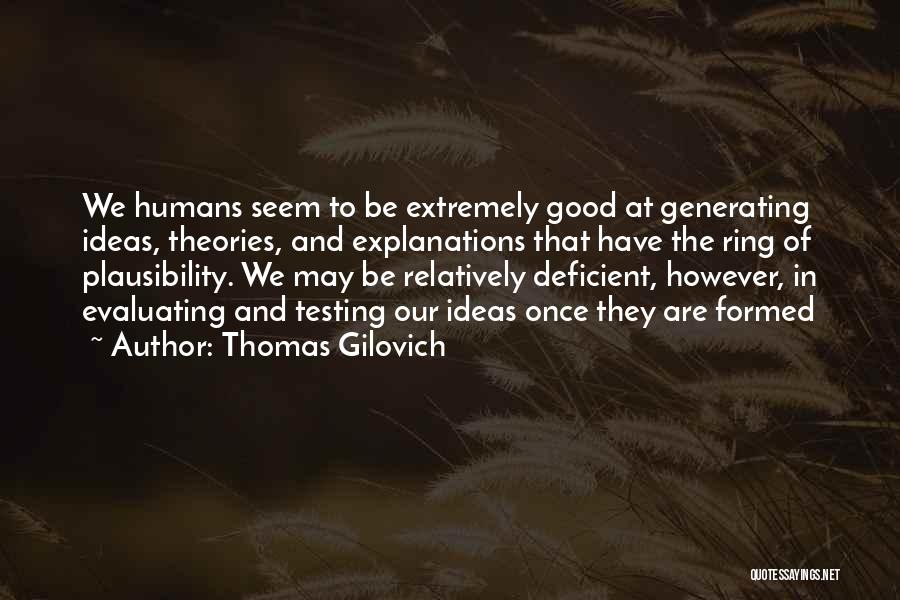
We humans seem to be extremely good at generating ideas, theories, and explanations that have the ring of plausibility. We may be relatively deficient, however, in evaluating and testing our ideas once they are formed — Thomas Gilovich
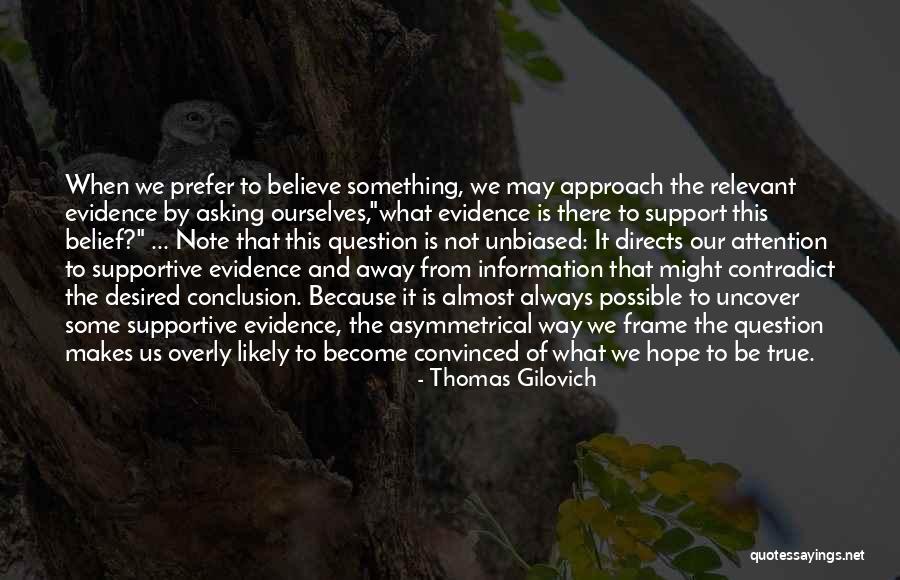
When we prefer to believe something, we may approach the relevant evidence by asking ourselves,"what evidence is there to support this belief?" ... Note that this question is not unbiased: It directs our attention to supportive evidence and away from information that might contradict the desired conclusion. Because it is almost always possible to uncover some supportive evidence, the asymmetrical way we frame the question makes us overly likely to become convinced of what we hope to be true. — Thomas Gilovich

People will always prefer black-and-white over shades of grey, and so there will always be the temptation to hold overly-simplified beliefs and to hold them with excessive confidence — Thomas Gilovich
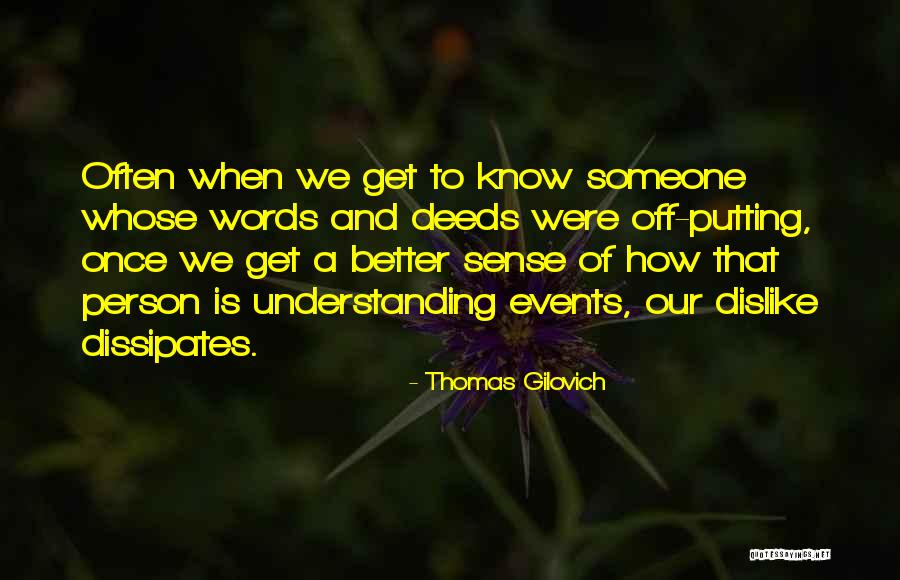
Often when we get to know someone whose words and deeds were off-putting, once we get a better sense of how that person is understanding events, our dislike dissipates. — Thomas Gilovich
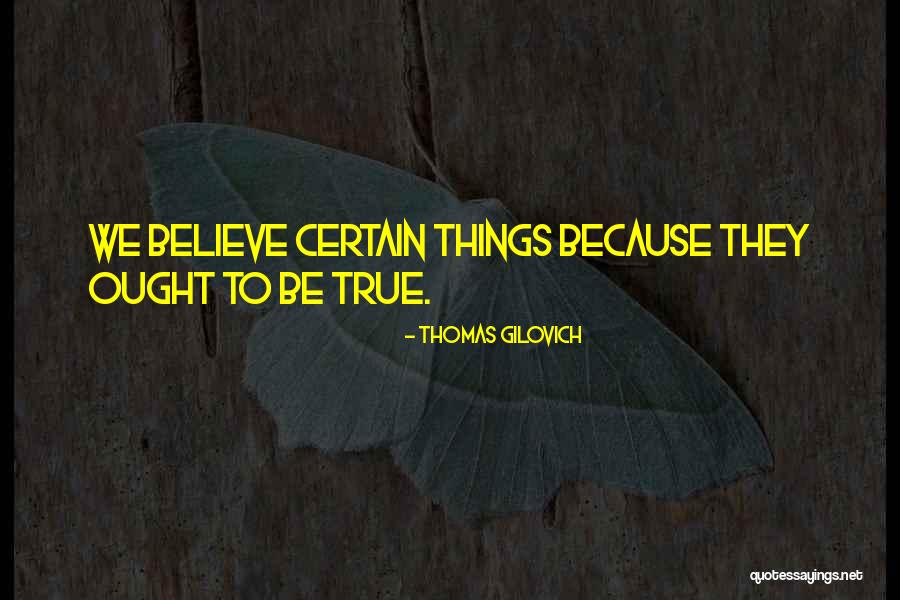
We believe certain things because they ought to be true. — Thomas Gilovich
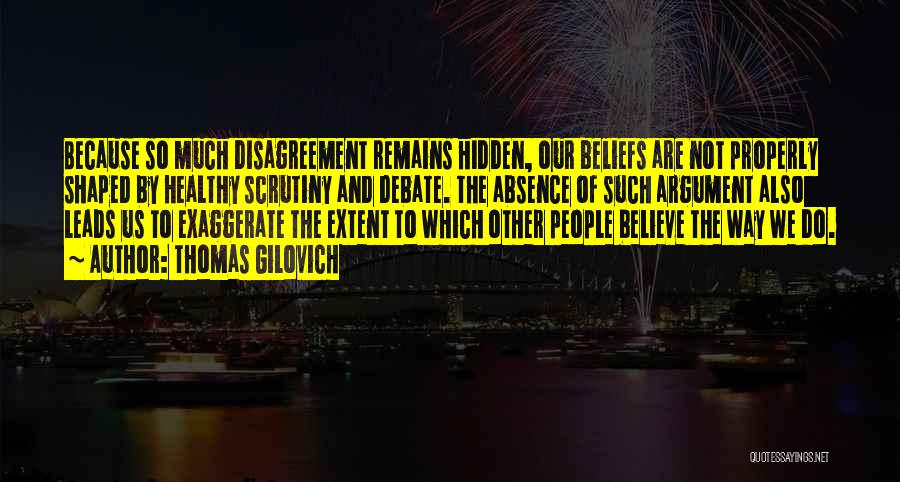
Because so much disagreement remains hidden, our beliefs are not properly shaped by healthy scrutiny and debate. The absence of such argument also leads us to exaggerate the extent to which other people believe the way we do. — Thomas Gilovich
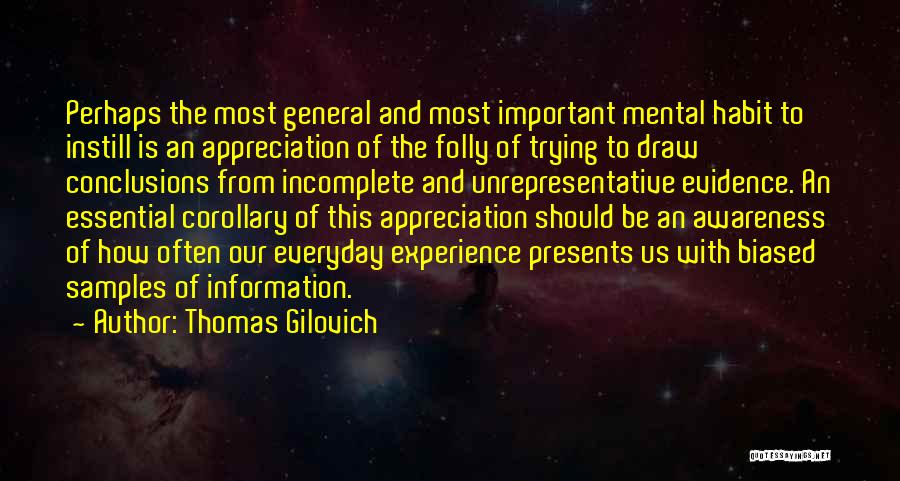
Perhaps the most general and most important mental habit to instill is an appreciation of the folly of trying to draw conclusions from incomplete and unrepresentative evidence. An essential corollary of this appreciation should be an awareness of how often our everyday experience presents us with biased samples of information. — Thomas Gilovich
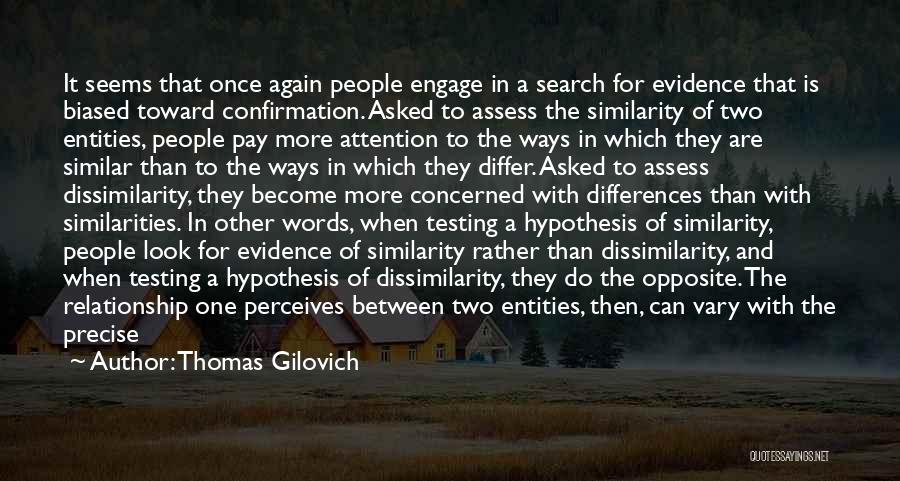
It seems that once again people engage in a search for evidence that is biased toward confirmation. Asked to assess the similarity of two entities, people pay more attention to the ways in which they are similar than to the ways in which they differ. Asked to assess dissimilarity, they become more concerned with differences than with similarities. In other words, when testing a hypothesis of similarity, people look for evidence of similarity rather than dissimilarity, and when testing a hypothesis of dissimilarity, they do the opposite. The relationship one perceives between two entities, then, can vary with the precise form of the question that is asked — Thomas Gilovich





